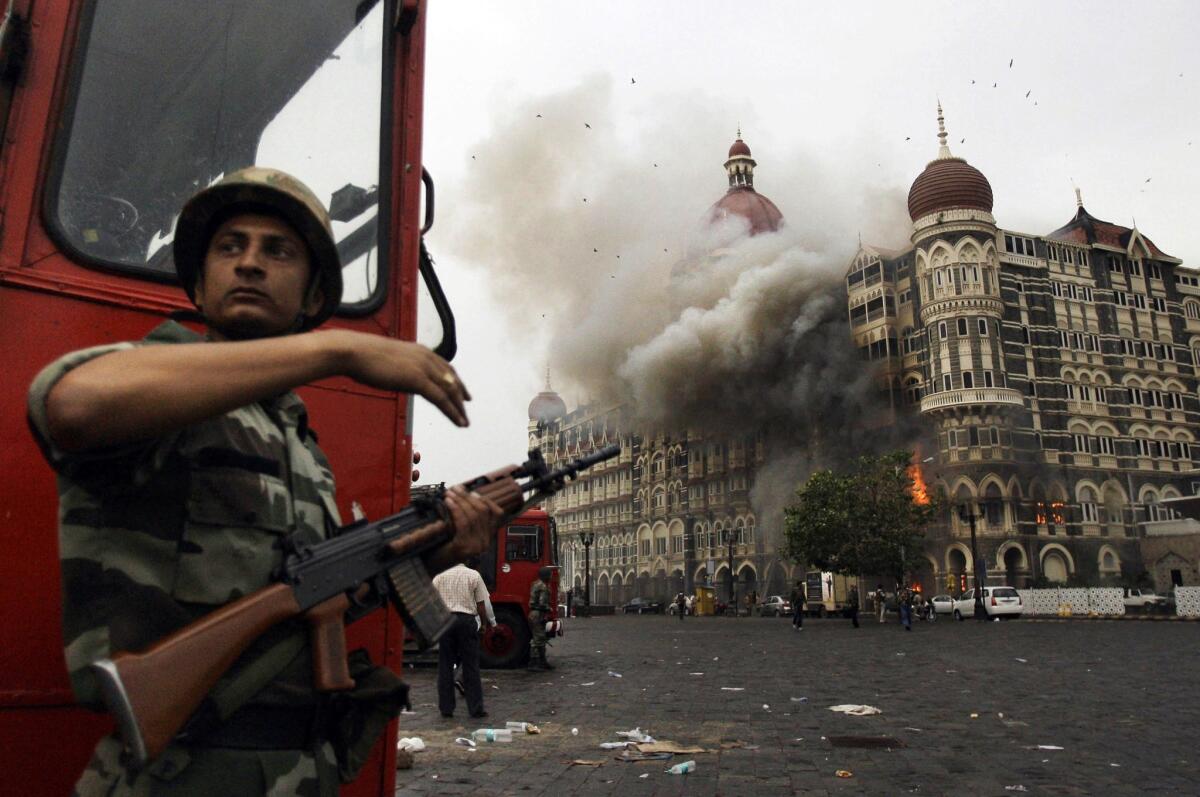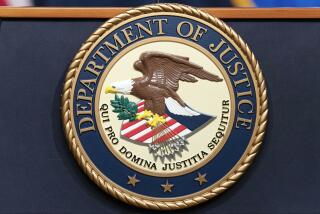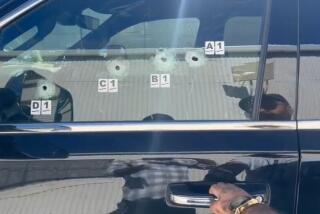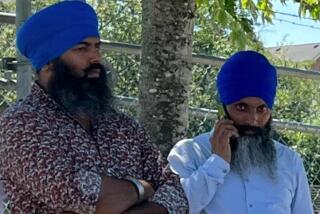American’s testimony comes at an awkward time for India-Pakistan relations

In this Nov. 29, 2008, file photo, an Indian soldier takes cover as the Taj Mahal hotel burns during gun battle between Indian military and militants inside the hotel in Mumbai, India. A Pakistani-American who helped plan a 2008 attack has told a court in India that he traveled to India seven times to scout potential targets for a Pakistan-based group.
As rivals India and Pakistan try to get oft-derailed negotiations on track, a familiar obstacle reappeared this week in the electronic form of David Coleman Headley.
The American-born militant of Pakistani origin has dominated the Indian media for two days with court testimony via videoconference from an undisclosed location in the U.S., where he is serving a 35-year sentence for involvement in the 2008 terrorist attacks in this commercial hub.
Granted a pardon in India in exchange for testifying against another alleged plotter, Headley on Tuesday repeated his assertions that Pakistan’s military spy agency, the Inter-Services Intelligence directorate, or ISI, helped Pakistani militants carry out the attacks that killed more than 160 people in Mumbai.
Headley said he was working for the ISI as well as the Pakistani militant group, Lashkar-e-Taiba, that India blames for the attacks. He said he scouted the luxury Taj Mahal Palace hotel – which was one of the targets – and passed video and photos to a Lashkar leader as well as an ISI contact he called “Maj. Iqbal.”
NEWSLETTER: Get the day’s top headlines from Times Editor Davan Maharaj >>
Much of Headley’s testimony repeated statements he made at his federal terrorism trial and in interviews he gave to Indian investigators in the U.S. But his reemergence comes at an awkward time, as India and Pakistan – nuclear-armed rivals that have fought four wars against each other in the last 70 years – struggle to revive wide-ranging security, economic and political talks.
Pakistan denies involvement with terrorism and has cast doubt on Headley’s credibility, frequently pointing out that he was a double agent. When he moved from the United States to Pakistan in 2002 to train with Lashkar, Headley was also working as an informant for the U.S. Drug Enforcement Administration.
India has long sought to have Headley testify to raise pressure on Pakistan to bring the perpetrators of the attacks to justice. Zakiur Rehman Lakhvi, whom Headley said was Lashkar’s operations commander, is free on bail in Pakistan where he awaits a long-delayed trial.
Hafiz Saeed, Lashkar’s spiritual leader whose speeches Headley said inspired him, has a $10-million U.S. bounty on his head but lives freely in the Pakistani city of Lahore.
On top of this, Pakistani officials this week said they had found no evidence to support India’s claims that Jaish-e-Mohammad, a domestic militant group, was behind a deadly attack last month on an air base in northern India. The raid deflated hopes of better relations after Indian Prime Minister Narendra Modi made an unannounced visit to Pakistan to meet Prime Minister Nawaz Sharif in December.
The developments this week “reinforce the lack of seriousness in Pakistan to deal with this problem,” said Alyssa Ayres, a South Asia expert at the Council on Foreign Relations.
As New Delhi and Islamabad attempt to restart dialogue, it’s the “opposite of a confidence-builder,” Ayres said.
Still, Sharif, the Pakistani leader, said last week that he hoped talks between the two countries’ foreign secretaries, which were postponed in January and have not been rescheduled, would still go forward.
In the long-running drama between the two nations, Headley has proven an unusual and enigmatic figure. Born Dawood Gilani to a Pakistani father and American mother, Headley was convicted on drug charges before making a deal with the DEA to become a federal informant and travel to Pakistan to investigate heroin trafficking in 2002.
Under questioning for several hours this week by Indian public prosecutor Ujjwal Nikam, Headley described himself as a “true follower” of Lashkar who was “influenced and motivated” by Saeed, the group’s founder and spiritual leader. He also juggled relationships with multiple women and stood out for having eyes of two different colors, a condition known as heterochromia.
Headley conducted reconnaissance of the Taj hotel while staying there with his wife, posing as a honeymooning couple, he said. He also surveyed naval and air bases, the state police headquarters and the crowded Siddhivinayak temple in northern Mumbai on behalf of Lashkar, he said.
See more of our top stories on Facebook >>
Since most of what Headley said in court was already known, analysts said efforts to restart high-level talks would continue.
“Back-channel talks are on” between the countries, said Jatin Desai, general secretary for the Pakistan India Peoples’ Forum for Peace and Democracy, an independent group that advocates for better bilaterial ties. “It should eventually lead to the official talks.”
Others said that getting Headley to testify was a public-relations victory for India, which has expressed frustration that U.S. authorities did not inform them about Headley despite tracking him before the 2008 attacks.
“His statement will definitely help India building its case and will put more pressure on Pakistan,” said Amir Rana, an independent security expert based in Islamabad, Pakistan.
Parth M.N. is a special correspondent. Special correspondent Aoun Sahi contributed to this report from Islamabad, Pakistan.
Follow @SBengali on Twitter for more news from South Asia
ALSO
‘How sweet it is,’ WikiLeaks’ Julian Assange declares after U.N. panel backs his freedom
In China, no ‘Revenant,’ but mad Oscar buzz for Leonardo DiCaprio
How are Muslims around the world reacting to Obama’s visit to a mosque?
More to Read
Sign up for Essential California
The most important California stories and recommendations in your inbox every morning.
You may occasionally receive promotional content from the Los Angeles Times.











